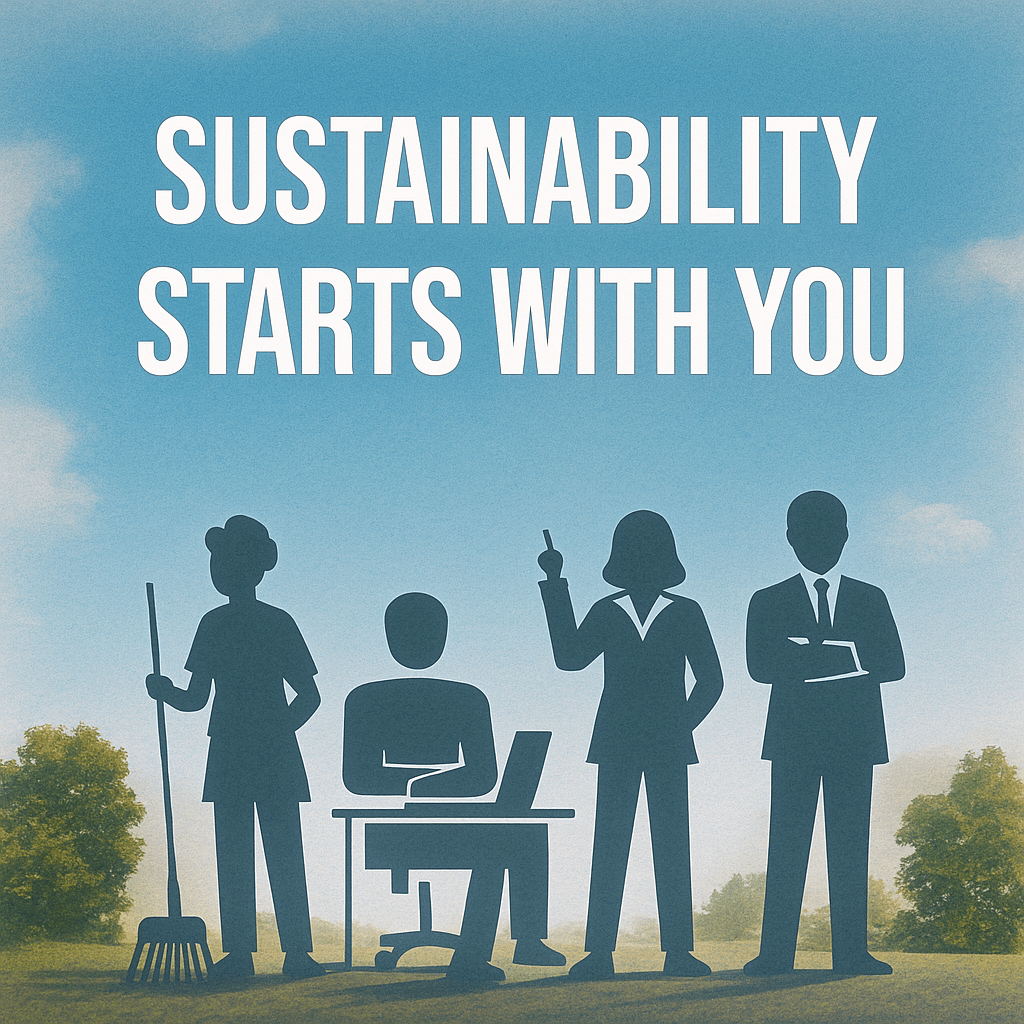Boudewijn Goossens (Future Focused leadership) | October 2024
Sustainability integration is no longer optional—it is essential for modern businesses. Yet, as Boudewijn Goossens explains, the current approach often isolates sustainability managers, leaving them overwhelmed and unsupported. “I see it over and over again,” Goossens observes, “the lonely and frustrated Sustainability Manager… tasked with transforming a business into a thriving sustainable operation, often with limited resources.”
True sustainability integration demands more than compliance-driven box-ticking. It requires embedding sustainability into the culture and operations of the entire organisation.
The Challenges of a Lack of Sustainability Integration
In many organisations, sustainability managers and Chief Sustainability Officers (CSOs) find themselves siloed. Appointed to drive transformative change, they often lack the structural support needed to succeed. Goossens notes, “Executives often make the mistake of appointing a manager to deal with sustainability in isolation.” The result is a system where managers are stuck focusing on compliance, ensuring boxes are ticked, rather than achieving meaningful environmental or social outcomes.
This isolation means sustainability initiatives become fragmented, reactive, and prone to last-minute fixes. Worse, without integration across departments, these efforts rarely translate into lasting value for the business—or the planet.
A Call for Collective Action
“Implementing improvements to satisfy ESG reporting can only be successful if the entire organisation is involved,” Goossens asserts. He points out that sustainability is not a standalone function—it’s an ethos that must be embedded across the company. This collective approach requires:
- HR: “Relook at how KPIs are set and appoint relevant new staff.”
- Finance: Allocate resources, ensuring every department budgets for sustainability initiatives.
- Sales: “Relook at market opportunities of sustainably produced products.”
- PR: Redesign communication strategies, engaging audiences with authentic sustainability narratives.
By taking a unified approach, businesses can shift from compliance-driven efforts to a forward-thinking model that builds resilience, innovation, and trust. Management workshop, SDGs report, global warming, green finance investment eco friendly and net zero waste in boardroom training building.

The Path to True Sustainability Integration
Goossens highlights the solution: “Implementing improvements to satisfy ESG reporting can only be successful if the entire organisation is involved.” Sustainability integration is about collaboration and shared responsibility. Here’s how companies can achieve it:
1. Form Cross-Departmental Sustainability Working Groups
A cross-functional team ensures sustainability initiatives are developed and executed collaboratively. Goossens suggests, “Start by forming a Sustainability Working Group… This could be a first move towards a shift in company culture.”
2. Embed Sustainability Integration in Leadership
Leaders play a critical role in driving sustainability integration. “Board members and executives might benefit from Masterclasses and Coaching sessions,” says Goossens. By educating leadership, companies can ensure sustainability becomes a strategic priority.
3. Align Sustainability with Operational Planning
Sustainability integration must move beyond box-ticking to become a proactive strategy. Goossens critiques ad hoc approaches, calling for sustainability to be embedded into operational and financial planning, creating long-term value and resilience.
Why Sustainability Integration is a Competitive Advantage
Embedding sustainability into company culture yields tangible benefits:
- Enhanced ESG Reporting: Integration ensures accurate, transparent disclosures aligned with global standards.
- Stronger Brand Identity: Demonstrating sustainability integration builds trust with investors, customers, and stakeholders.
- Operational Resilience: Proactive practices improve adaptability in the face of environmental and market challenges.
- Cost Efficiency: Reducing reliance on consultants and uncovering internal efficiencies leads to cost savings.
- Employee Engagement: Sustainability integration fosters a purpose-driven culture that boosts morale and retention.
Goossens emphasises that sustainability integration not only strengthens the planet but also positions businesses to thrive in competitive markets.
A Partner for Proactive Sustainability
At The Corporate Reporters, we echo Boudewijn’s call for systemic change. Our expertise spans the reporting spectrum, from crafting sustainability and ESG reports to supporting leadership in driving cultural transformation. We know that sustainability is not just a compliance requirement—it’s a strategic opportunity.
Goossens encapsulates this shift best: “Start by forming a cross-departmental Sustainability Working Group… This could be a first move towards a shift in company culture.” With our help, your organisation can take this first step and beyond, ensuring sustainability becomes a cornerstone of your strategy.
Contact us today to explore how we can support your corporate sustainability transformation and achieve your ESG reporting goals.

